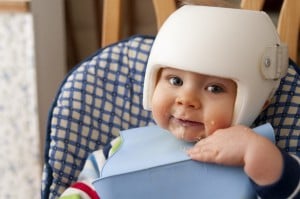Social media often gets a bad rap, but it is fair to say it has many positives. For one, I have lived in eight cities during my thirty-four years of life and am actively connected with friends from at least six of those places due to social media. And I love that! I also love to write, and because of social media, I have grown and expanded my blog audience to people and places I couldn’t have otherwise reached if it weren’t for using different social media platforms. So, for that, I owe social media a BIG thank you.
But at the same time, the tiny squares of Instagram can give me a full-blown anxiety attack when I see a fellow mama friend posting pics of her newly decorated ALL WHITE house when she has three kids under age 4! I mean, how is a mama supposed to keep a white couch clean? It can make me feel like I lack something within myself if I stare at those tiny squares too long!
And you know what also leaves me lacking? When I unintentionally compare my children to someone else’s on social media!
It’s easy to say you would NEVER be so petty to do this until you see your neighbor post about his 15-month-old daughter being able to sing the ABCs! And then you might find a conversation like this occurring between you and your spouse:
Wife: Oh my goodness. Did you see that Katie and Derek’s baby started singing her ABCs yesterday? And she’s only 15 months old! I wonder why ____ isn’t doing that yet.
Husband: Yes, I saw. I would imagine he’s not saying them because he’s STILL A BABY!
Wife: But do you think we should be worried? Maybe we should get him in tutoring?
Husband: Are we really having this conversation? [Insert eye-rolling emoji]
Okay, I’m exaggerating a little. But this isn’t too far off from the sort of crazy conversations that occur if you let the comparison game get going too strong before reigning it in! I mean, have you ever found yourself comparing your child to someone else’s because of a cute post or video on social media? Or, have you ever just found yourself comparing your child to someone else’s? And then end up feeling worried about your own?
Well, me too! And we know that this is not only non-productive but also foolish.
Things to Consider When Comparing Your Child to Others
Here are a few tips to keep yourself in check the next time you find yourself concerned after comparing your child to others.
1. Every Child Has Different Strengths and Aptitudes
Yes, it may be true that your friend in Georgia has a child reading at age 3. But your child may be sitting and working puzzles for hours, and their child has no interest. It is easy to see what your child cannot do when compared to others and easy to forget all they can do. By nature, when our child does something quickly, we are more apt to consider their ability normal until we realize not every child can do the same things. Likewise, when we see what another child is doing, we can quickly feel like ours should be doing more instead of recognizing that children have different strengths. Moral of the story: focus on your child’s strengths and wait for other skills to come as they are ready.
2. Gender Does Play A Part
I believe in nature as the most significant determinant of personality based on my 11 years of raising sons. And that says something—given I know and believe healthy nurture is imperative based on my training as a marriage and family therapist! But no matter whether it is nature or nurture, science says gender plays a role in development that cannot be ignored. For example, research shows that the stereotype of girls talking earlier, more socially attuned to the needs and emotions of others, and more capable than boys of sitting down for a structured game of play is more or less accurate, even though many of these traits tend to even out with age.1
Clearly, this doesn’t mean that every girl speaks earlier than boys or that all girls are interested in sitting and playing with dolls versus running on the playground, but there is research that says a girl is more prone to excel in these areas at an earlier age.1 So comparing a girl to a boy with development is not necessarily fair. (If your experience with boys and girls differs, I would love to hear more!)
3. The Young Version of a Child is NOT the Adult Version
A few months ago, I sat next to a very polished businessman talking about his job to me one day at our son’s football game. As he told me about his business, I was silently sitting and thinking about how impressed I was with his company’s strategy and his clear intelligence driving its success. As he talked, his sweet and offbeat son ran up to him in the middle of the game to tell him hi. He then looked over at me and said, “I was just like him when I was little. My parents never knew what would come out of my mouth!” At first, I didn’t believe him and said, “Are you kidding?” Because his personality as an adult seems so refined. But he assured me he was always immature for his age until he graduated from college.
Case in point—a wild kid does not mean they will forever be wild and unrefined as an adult. Nor does a calm and perfect child suggest they will remain that way throughout adulthood. Personalities grow and evolve as children grow. So don’t look at another child who seems to be maturing faster than your child and assume there is no hope for your little offbeat, free spirit! They just might need time to grow, which works out perfectly since that is the point of childhood.
Remember, comparison is the thief of joy—and we only get this time with our precious babies once. So enjoy every minute and don’t waste it with silly comparisons.































